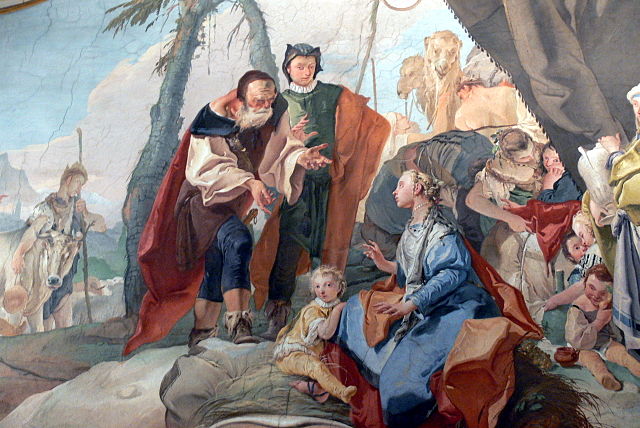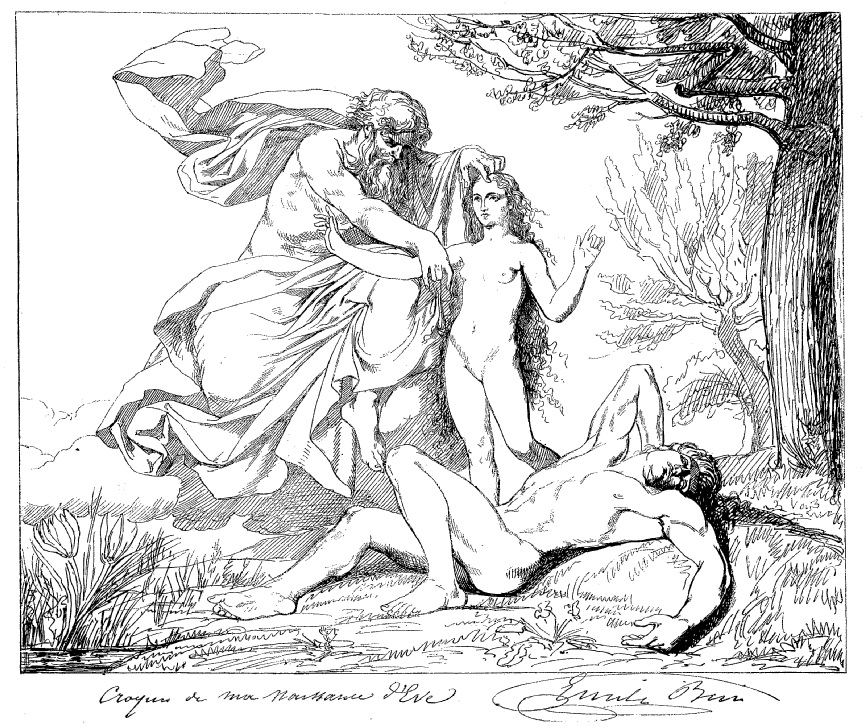The story of Jephthah’s daughter dramatises the perversion of faith occasioned by a lack of knowledge.
Did he? Did he not? The question is perennial. The response is often predictable. How could he? Why would he? It ought not be this complicated.

The fate of Jephthah’s daughter is a cult classic. A man makes a vow to God that should he be victorious over his enemies, he would offer whatever came out of his house to meet him for a burnt offering unto God. He goes to war and is victorious. He returns home to a warm embrace. No, not from a cow. Not from a goat either. His only child rushed out of the house into her daddy’s arms in celebration. Joy turns into mourning. Remember the vow?
So did Jephthah pay his vow? The consensus tends to be a resounding ‘Yes’. Did God accept the offering? Most commentaries incline towards a ‘Yes’. But did God not outlaw human sacrifice? Again, ‘Yes, but….’ The arguments go something like:
‘Jephthah did not kill his daughter, because as we all know, God abhors human sacrifice. Jephthah must have simply dedicated her to God, hence the daughters of Israel bemoan her virginity, not her life.’
If that was all Jephthah did, then the vow was not paid. What he vowed was a burnt offering not a gift pack. If a dedication was all Jephthah needed to do, then what’s all the fuss about? Mosaic laws gave allowance for the redemption of people devoted to God. [1]Numbers 18:16 It didn’t have to be an occasion for mourning. Expensive? Yes. Catastrophic? No.
What he vowed was a burnt offering not a gift pack.
A second problem with assuming he did not offer her as a burnt offering because God abhors human sacrifice presupposes that people only ever offered sacrifices acceptable to God, and that God invariably accepted whatever was offered to him! [2]Isaiah 1:10-15 The logic then is that if Jephthah offered his daughter for a burnt offering, God must have accepted it; but since God would not accept human sacrifice, Jephthah didn’t, quod erat demonstrandum. Please!
So what did Jephthah do?
Perhaps the best approach would be to take in the whole context. There is an ominous refrain in the book of Judges. It is sufficiently ubiquitous to represent a sinister undercurrent to much of the narratives in that book. From time to time we’re reminded that:
“In those days there was no king in Israel, but every man did that which was right in his own eyes.” [3]Judges 17:6; 21:25
Those through whom these stories were handed down knew enough to foresee the horror with which they would be received. It became necessary to situate these stories within the context of an anarchical period in Israel’s history. Those were the days when the children of Benjamin acted in a way that made the people of Sodom and Gomorrah seem like pitiful wannabes. [4]Judges 19 A Levite hired himself out to be priest to a Jewish idol worshipper. [5]Judges 17 And Gideon’s father dedicated a shrine to Baal in his own home. These were hardly the generation of the covenant faith.
Israel was without the true God, a teaching priest and the law.
Between the Golden Calf [6]Exodus 32 and Baal-Peor, [7]Numbers 25; Psalm 106:2 we learn that while Moses succeeded in taking the Israelites out of a heathen culture, he could not take the heathen culture out of the Israelites. Joshua realised that while their mouths swore allegiance to the God revealed at Sinai, their homes offered comfortable residence for all manner of gods. [8]Joshua 24:2 That syncretic religious culture slithered down the alleys of the very cultures God raised Israel up to obliterate. There were times it appeared they couldn’t tell the difference between El Elohe Israel and whichever other El was about. According to Prophet Amos:
“Have ye offered unto me sacrifices and offerings in the wilderness forty years, O house of Israel? But ye have borne the tabernacle of your Moloch and Chiun your images, the star of your god, which ye made to yourselves.” [9]Amos 5:25-26
There are intimations in the prophecy of Ezekiel that the sacrifices and offerings to which Amos alluded may not have been limited to grain offering. Human sacrifice was specifically mentioned as a transgression that had trapped the people in a vortex of death; and they thought they offered those stuff to God:
“Because they had not executed my judgments, but had despised my statutes, and had polluted my sabbaths, and their eyes were after their fathers’ idols. Wherefore I gave them also statutes that were not good, and judgments whereby they should not live; And I polluted them in their own gifts, in that they caused to pass through the fire all that openeth the womb, that I might make them desolate, to the end that they might know that I am the LORD.” [10]Ezekiel 20:24-26
Added to this mix was a culture of rampant ignorance. When a book of the law (what scholars suspect might have been Deuteronomy) was discovered in the temple, King Josiah received the content with such morbid shock that you would be forgiven for thinking the law code in that book was an unfamiliar quantity to the king and his court. He was so petrified he initiated a religious reform.
So how far away from the letter and spirit of the covenant faith had ancient Israel drifted? Not hard to tell. According to the Deuteronomist recorders:
“Now for a long season Israel hath been without the true God, and without a teaching priest, and without law.” [11]2 Chronicles 15:3
For how long did the season of unknowing stretch? During the period in which Israel was without the true God, what were the people serving, to which god did they offer their sacrifices and what did they offer? The bible tells us that long before Israel had a territorial expression, she had a divinely revealed law. In the period during which the bible says Israel was without law, with which code had the people replaced the laws of God? And what was acceptable under such a law code?
To what extent did this culture influence Jephthah’s religiosity? What about the man? What does scripture tell us about Jephthah – besides the fact that he was a vagabond, an opportunist with a rash mouth on him -[12]Judges 11:3, 9 to cause us to suppose he was beyond the pervasive, syncretic, religious culture of his time?
Covenant communities no longer offer humans for sacrifices, they offer their souls.
Okay! We’re told the Spirit of God came upon him mightily for a divine purpose. Is that it? After having declined the offer to rule Israel, deferring sovereignty to God, Gideon nonetheless led Israel to idolatry, thereby incurring a snare to his own home. [13]Judges 8:22-27 In spite of a covenantal relationship with God, Solomon nonetheless built altars to the gods of his foreign wives. A knowledge of the history of their people was never enough to discourage the leadership from undermining the kernel of that history. Have you not read what Daniel told Nebuchadnezzar about the character of some so-called anointed of the Lord?
“This matter is by the decree of the watchers, and the demand by the word of the holy ones: to the intent that the living may know that the most High ruleth in the kingdom of men, and giveth it to whomsoever he will, and setteth up over it the basest of men.” [14]Daniel 4:17
This is not about taking a stick to Jephthah’s hide. That narrative is as touching today as it was so many millennia ago. The story of Jephthah’s daughter isn’t so much about which offering God would accept or which were abhorrent to Him. The narrative dramatises the perversion of faith occasioned by a lack of knowledge. It is an ever present danger in nations and churches where divine revelation is overthrown in a monomaniacal pursuit of material success.
Whereas covenant communities no longer offer humans for sacrifices, they offer their souls. And though they think their offerings are unto God, they are often to Mammon. For in the absence of teaching priests, the true God is edged out of the equation and all manner of beliefs, theology and practice take route.


